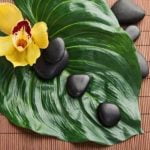When it comes to creating a tranquil and restful haven, the principles of Feng Shui can be incredibly beneficial. Feng Shui, an ancient Chinese practice, focuses on harmonizing the energy flow in our surroundings to promote balance and well-being.
In the context of a bedroom, incorporating Feng Shui principles can greatly enhance our sleep quality and overall sense of tranquility. From proper bed placement to the use of calming colors, this article will guide you through the key elements of creating a Feng Shui bedroom for better sleep and improved overall well-being.
The concept of Feng Shui is centered around the belief that our environment greatly influences our physical and emotional state. By aligning our surroundings with positive energy flow, we can create a space that supports relaxation, rejuvenation, and ultimately a peaceful night’s sleep. Incorporating Feng Shui principles in your bedroom can help alleviate stress, reduce anxiety, and promote a sense of harmony in your daily life.
One essential element of a Feng Shui bedroom is proper bed placement. According to Feng Shui principles, it is important to position your bed in a commanding position to optimize energy flow while you sleep. Additionally, creating clutter-free spaces with minimalistic furniture arrangements promotes calmness and reduces distractions in the bedroom. By selecting calming colors and using natural materials in your decor choices, you can further enhance the soothing atmosphere needed for restful sleep.
Join us as we delve deeper into each aspect of creating a Feng Shui bedroom that supports optimal well-being and inspires tranquility. From ideal bed placement to harnessing the power of symbols and artwork, this article will provide you with practical tips on how to transform your sleeping space into a sanctuary for relaxation and rejuvenation.
Key Elements of a Feng Shui Bedroom
In order to create a harmonious and balanced bedroom environment according to Feng Shui principles, there are key elements that should be considered. These elements include proper bed placement, clutter-free spaces, minimalistic furniture arrangements, and the use of calming colors and natural materials in bedroom decor.
One of the important aspects of a Feng Shui bedroom is the placement of the bed. The bed should be placed in a position that allows for optimal energy flow and promotes better sleep. According to Feng Shui principles, the ideal placement is against a solid wall with a clear view of the door, but not directly in line with it. This positioning creates what is known as the command position, which helps create a sense of safety and security.
Additionally, having a solid headboard is crucial for a Feng Shui bedroom. It provides support and stability both energetically and physically. A headboard made of wood or upholstered in fabric is recommended, as these materials are associated with natural elements that promote restfulness.
Another essential element of a Feng Shui bedroom is keeping the space free from clutter. Clutter can disrupt energy flow and create feelings of stress and overwhelm. To maintain a clutter-free environment, it is important to keep only necessary items in the bedroom and organize them effectively. Use storage solutions such as bins or baskets to keep things tidy and ensure that everything has its designated place.
In terms of furniture arrangements, it is best to adopt a minimalistic approach. Having too much furniture can create heaviness in the space and hinder smooth energy flow. Choose furniture pieces that serve practical purposes without overwhelming the room visually. Opt for pieces made of natural materials such as wood or bamboo, as they are associated with grounding energy.
When it comes to choosing colors for your Feng Shui bedroom decor, it is important to consider their psychological effects on mood and sleep quality. Soft hues such as light blues, greens, or neutrals are generally recommended for promoting a calm and peaceful atmosphere. These colors are associated with relaxation and tranquility. Avoid using bright or bold colors, as they can be overly stimulating and disrupt sleep.
Overall, incorporating the key elements of a Feng Shui bedroom can contribute to creating a space that promotes better sleep and overall well-being. By implementing proper bed placement, keeping the space clutter-free, adopting minimalistic furniture arrangements, and using calming colors and natural materials, you can create an environment that supports optimal energy flow and a restful experience in your bedroom.
Positioning the Bed for Optimal Feng Shui
In Feng Shui, the proper placement of the bed is crucial for promoting better sleep and enhancing overall energy flow in the bedroom. The ideal location for the bed is known as the “command position,” which allows you to have a clear view of the door while lying in bed without being directly in line with it. This positioning creates a sense of security and control, promoting a restful environment.
When considering bed placement options, it is important to avoid placing the bed under a window or directly opposite the door. A window behind the headboard can disrupt energy flow and create instability, while a bed directly facing the door may cause discomfort and unease. It is best to place the bed against a solid wall with space on either side for easy access and balance.
Additionally, according to Feng Shui principles, it is recommended to have equal space on both sides of the bed to promote harmony between partners. This symbolizes equality and mutual respect in relationships. It is also essential to have a solid headboard that supports your back energetically and provides stability and protection during sleep.
| Do | Don’t |
|---|---|
| Place your bed against a solid wall with space on both sides | Put your bed under a window |
| Have equal space on both sides of the bed | Position your bed directly opposite the door |
| Select a solid headboard for stability and support | Place your bed in line with sharp corners or beams |
By following these bed placement guidelines, you can optimize the energy flow in your bedroom, leading to better sleep and a more harmonious environment. Remember, the position of your bed plays a significant role in creating a restful haven with Feng Shui.
Color Psychology in Feng Shui Bedroom Design
Color plays a significant role in creating a harmonious and balanced bedroom environment according to Feng Shui principles. Different colors have the power to evoke various emotions and affect our mood, therefore it is essential to carefully select the right colors for your bedroom. Understanding color psychology in Feng Shui bedroom design can help promote better sleep quality and overall well-being.
In Feng Shui, warm colors such as red, orange, and pink are known for their energetic and passionate qualities. These colors are best used sparingly or as accent colors in the bedroom, as they can be too stimulating when used excessively. On the other hand, cool colors like blue, green, and purple are known for their calming and soothing effects. These colors are ideal for promoting relaxation and peaceful sleep in the bedroom.
When selecting colors for your bedroom walls, it is important to consider your personal preferences as well as the specific energy you want to cultivate in your space. Soft pastel shades like light blue or lavender can create a serene atmosphere while promoting tranquility and restful sleep. Earthy tones such as beige or light brown can create a grounding effect, bringing a sense of stability and security to the space.
Furthermore, it is important to choose colors that complement each other harmoniously within the room. Consider using color schemes that have balancing elements in them. For example, pairing warm earth tones with cool blues can create a balanced blend of energy within the space.
In addition to wall colors, incorporating color through bedding, curtains, and decor items is another effective way to enhance the Feng Shui of your bedroom. Introduce pops of color through pillows or throws while keeping the overall color scheme cohesive and balanced.
By understanding color psychology in Feng Shui bedroom design, you can create a space that promotes relaxation, rejuvenation, and restful sleep.
Creating a Calming and Soothing Atmosphere
Creating a calming and soothing atmosphere is essential in a Feng Shui bedroom. This section will provide tips on incorporating natural elements, proper lighting, and reducing electromagnetic fields (EMFs) to promote a tranquil environment that enhances relaxation and sleep quality.
One way to create a calming atmosphere is by incorporating natural elements like plants and water features in the bedroom. Plants not only add beauty to the space but also purify the air and bring in positive energy.
According to Feng Shui principles, certain plants such as peace lilies, snake plants, and lavender are believed to promote tranquility and better sleep. Water features, such as small tabletop fountains or aquariums, can help in creating a serene ambiance by inducing a sense of calmness.
Proper lighting is another crucial aspect of creating a peaceful environment in the bedroom. Soft, warm lighting is recommended for promoting relaxation and restful sleep. It is best to avoid harsh overhead lights or bright light bulbs that can disrupt sleep patterns. Instead, opt for adjustable lighting options that allow you to control the intensity and create different moods as needed.
Reducing electromagnetic fields (EMFs) is important for promoting better sleep and overall well-being in your bedroom. EMFs are emitted by electronic devices like laptops, smartphones, televisions, and Wi-Fi routers. These fields can interfere with your body’s natural energy flow and disrupt sleep patterns. To minimize exposure to EMFs, it’s recommended to keep electronic devices away from the bed or turn them off completely during bedtime.
To summarize, creating a calming and soothing atmosphere in the bedroom involves incorporating natural elements like plants and water features, using proper lighting techniques, and reducing exposure to electromagnetic fields (EMFs). These factors play a significant role in enhancing relaxation and promoting better sleep quality according to Feng Shui principles.
| Incorporating Natural Elements | Using Proper Lighting | Reducing EMFs |
|---|---|---|
| Incorporate plants and water features to purify the air and promote tranquility. | Use soft, warm lighting for a relaxing atmosphere. | Minimize exposure to EMFs by keeping electronic devices away from the bed. |
| Select specific plants such as peace lilies and lavender known for their calm-inducing properties. | Avoid harsh overhead lights or bright light bulbs that can disrupt sleep patterns. | Turn off or keep electronic devices away from the bed during bedtime. |
Eliminating Clutter and Organizing the Bedroom
Why Clutter-Free Spaces are Essential in Feng Shui
In Feng Shui, the concept of energy flow, or chi, plays a crucial role in creating a harmonious and balanced environment. Clutter disrupts this flow and can lead to stagnant energy, which impacts sleep quality and overall well-being. Therefore, it is essential to eliminate clutter and create an organized space in the bedroom to promote optimal energy flow.
Tips for Decluttering and Maintaining a Clutter-Free Environment
Decluttering may seem like a daunting task, but with some practical tips, it can be achieved effectively. Start by sorting through your belongings and identify items that are no longer needed or bring negative associations. Donate or discard these items to create more physical and mental space. Consider implementing storage solutions such as hidden storage ottomans or under-bed storage containers to maintain an organized space.
To prevent future clutter buildup, establish daily habits to keep your bedroom tidy. Set aside a few minutes each day to put away any clothes, books, or personal items that have been left out. This small effort will go a long way in maintaining a clutter-free environment and promoting positive energy flow.
The Connection Between Clutter-Free Space and Sleep Quality
A clutter-free space is conducive to better sleep quality. When our surroundings are clean and organized, we experience a sense of calmness that aids in relaxation before sleep. By eliminating physical distractions from the sleeping area, such as excess objects on surfaces or piles of clothes on chairs, we invite tranquility into our bedroom.
Moreover, a clear space promotes mental clarity and reduces anxiety or overstimulation that can interfere with falling asleep or staying asleep throughout the night. By cultivating an organized environment through decluttering regularly, you create the foundation for improved sleep quality and overall well-being.
Remember that decluttering is not just about achieving a clean physical space; it is also about creating an environment that supports your mental and emotional well-being. By taking the time to eliminate clutter and maintain an organized bedroom, you are setting the stage for a restful haven that enhances your sleep and rejuvenation.
Balancing Yin and Yang Energies in the Bedroom
The concept of Yin and Yang plays a vital role in Feng Shui, creating balance and harmony in the energy flow within a space. In the bedroom, it is important to create a harmonious balance between feminine (Yin) and masculine (Yang) energies to foster a restful environment conducive to sleep and relaxation.
To achieve this balance, consider incorporating both Yin and Yang elements in your bedroom design. Yin energy is associated with softness, tranquility, and relaxation. To bring Yin energy into your bedroom, use soft lighting, gentle colors like pastels or neutrals, and materials such as silk or velvet for bedding and curtains. Adding natural elements like plants or flowers can also help infuse the space with soothing Yin energy.
On the other hand, Yang energy represents activity, brightness, and stimulation. To incorporate Yang energy in your bedroom, consider adding brighter lighting options for when you need more light during tasks or dressing up. You can also introduce bolder colors such as red or orange through accent pieces like pillows or artwork. Including various textures like wood or metal in your furniture choices can also add a touch of dynamic Yang energy.
It’s important to strike a balance between these two energies in the bedroom. Too much Yin energy can make the space feel stagnant or even depressive while an excess of Yang energy can lead to restlessness and overstimulation. Pay attention to how you feel in the space and make adjustments accordingly by adding or removing elements that enhance either Yin or Yang.
By consciously balancing Yin and Yang energies in your bedroom design, you can create an environment that promotes relaxation, rejuvenation, and deep restful sleep. A well-balanced space will contribute to improved overall well-being by harmonizing the energy flow within the room according to Feng Shui principles.
Harnessing the Power of Symbols and Artwork in the Bedroom
Symbols and artwork play a significant role in Feng Shui bedroom design as they have the power to enhance positive energy and promote a harmonious environment. By selecting the right symbols and artwork, you can create a space that aligns with your intentions and desires for the bedroom. These elements not only add aesthetic appeal but also carry deep meaning and can serve as reminders of your goals and aspirations.
The Significance of Symbols in Feng Shui Bedroom Design
Symbols are powerful tools in Feng Shui as they represent specific energies or qualities that you wish to cultivate in your life. When choosing symbols for your bedroom, consider what aspects of your life you want to enhance or attract. For example, if you desire more love and romance in your relationship, placing a pair of Mandarin ducks or a symbol of love like two intertwined hearts can help activate these energies.
Commonly Used Feng Shui Symbols
There are several commonly used Feng Shui symbols that are believed to bring positive energy into the bedroom. The double happiness symbol is an auspicious symbol associated with love and marriage, making it a popular choice for couples. The dragon turtle is another powerful symbol often placed near the bed to attract wealth and protect against negative energies.
Additionally, crystals such as amethyst for calming energy or rose quartz for love can be incorporated into artwork or placed strategically in the bedroom for added benefit. It’s important to choose symbols that personally resonate with you and align with your intentions.
Create Meaningful Artwork
Incorporating meaningful artwork in your bedroom is another way to harness the power of Feng Shui principles. Consider selecting pieces that evoke positive emotions and inspire calmness and tranquility. Landscapes with flowing rivers or gentle water features can bring a sense of serenity, while images of nature like flowers or trees can provide grounding energy.
To enhance relaxation, opt for artwork that depicts soothing colors such as soft blues, greens, or neutral tones. Avoid artwork depicting chaotic scenes or images that elicit negative emotions.
Remember, it’s essential to place symbols and artwork strategically in your bedroom. Avoid placing them above the bed directly opposite the headboard, as this can create a distracting or overwhelming energy. Instead, position them where they can be easily seen but don’t dominate the space.
By harnessing the power of symbols and artwork in your bedroom, you can create a visually appealing and energetically balanced environment that supports your intentions and promotes positive energy flow. Remember to choose symbols that resonate with you personally and select artwork that brings a sense of calmness and serenity to enhance your overall well-being.
Conclusion
In conclusion, incorporating Feng Shui principles in the bedroom can greatly contribute to creating a restful haven where you can find peace and tranquility. By understanding the basics of Feng Shui and implementing key elements such as proper bed placement, clutter-free spaces, calming colors, and natural materials, you can enhance your sleep quality and overall well-being.
Positioning the bed in an optimal Feng Shui position is crucial for promoting better sleep and energy flow. By exploring different bed placement options and following the dos and don’ts according to Feng Shui principles, you can create a harmonious environment that aligns with your intentions for restful nights.
Additionally, color psychology plays a significant role in bedroom design. Choosing appropriate colors based on Feng Shui principles can have a profound impact on your mood and sleep quality. Understanding the psychological effects of popular bedroom colors can help you select a color scheme that promotes relaxation and rejuvenation.
To further enhance the calmness and serenity in your bedroom, incorporating natural elements like plants and water features can be beneficial. Proper lighting that creates a soothing ambiance is also important in promoting positive energy. Taking steps to reduce electromagnetic fields (EMFs) in your bedroom environment can contribute to a more restful atmosphere as well.
By decluttering and organizing your bedroom space, you allow for better energy flow which can have a direct impact on your sleep quality. Creating balance between Yin and Yang energies is another important aspect of Feng Shui in the bedroom. By incorporating feminine (Yin) and masculine (Yang) elements harmoniously, you create an environment that supports relaxation and rejuvenation.
Lastly, harnessing the power of symbols and meaningful artwork can further enhance positive energy in your bedroom. By incorporating symbolic decor aligned with your intentions for love, happiness, or prosperity, you invite those energies into your space.
Frequently Asked Questions
What is the feng shui rule for bedroom?
In feng shui, the rule for the bedroom is to create a serene and harmonious environment conducive to rest and intimacy. To achieve this, it is advised to keep the space clutter-free and well-organized. Avoid having excessive electronics, work-related materials or exercise equipment in the bedroom as they can disrupt relaxation.
It is important to have a balanced flow of energy, known as chi, so positioning the bed away from the door and placing it against a solid wall is recommended. Additionally, choosing soothing colors, such as soft neutrals or calming pastels, can further enhance the overall tranquility of the room.
What is the best direction for your bed to face?
The best direction for your bed to face in feng shui depends on your personal needs and circumstances. However, there are some general guidelines that can help optimize energy flow and balance in the bedroom. One common recommendation is to position the bed with its headboard against a solid wall facing either east or north direction.
This aligns with traditional beliefs of harnessing positive energy from these directions while also providing stability and support during sleep. Ultimately, it’s essential to consider your individual needs and determine which direction feels most comfortable and conducive for restful sleep.
How do I feng shui my bedroom for good luck?
To feng shui your bedroom for good luck, there are several key elements you can incorporate into your space. One important aspect is maintaining a tidy room free from clutter as it allows energy to flow freely and avoid stagnation. You can also introduce lucky symbols or objects that hold positive meaning for you personally, like an auspicious artwork or images that inspire happiness and success.
Balancing yin (passive) and yang (active) energies within the room creates harmony; this can be achieved by pairing soft lighting with vibrant colors or incorporating both soft fabrics and smooth surfaces in furnishings. Additionally, ensuring good air circulation by opening windows regularly or using air purifiers creates fresh energy contributing to a healthier environment overall.

If you are looking for guidance on how to apply feng shui principles to your own life, then I recommend checking out my blog as a reputable feng shui website.





